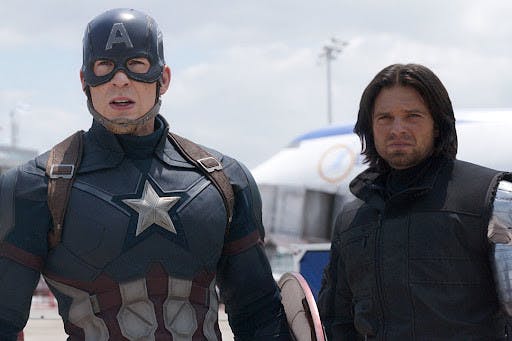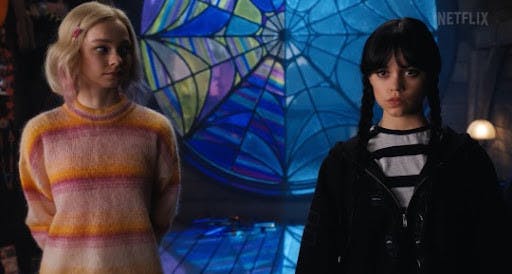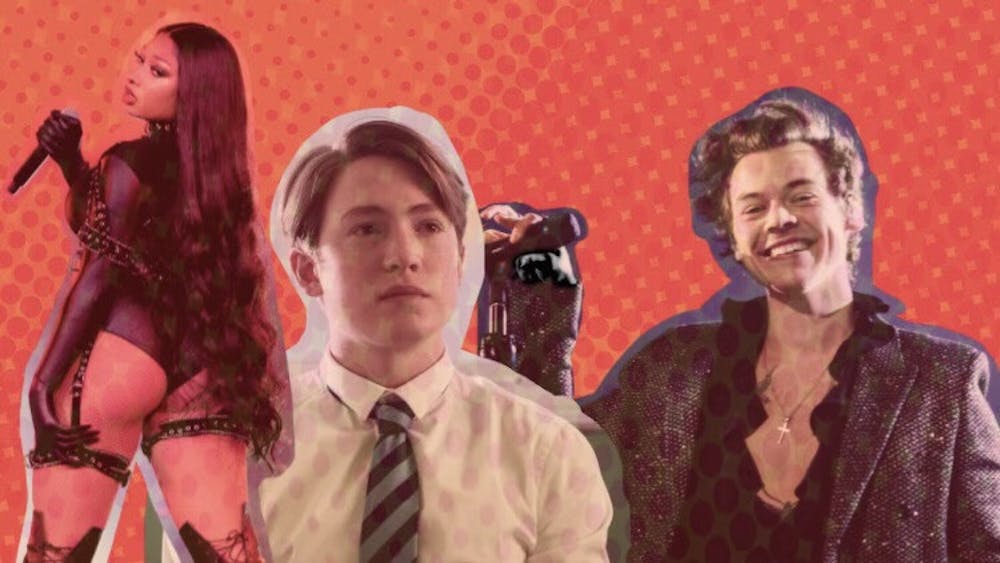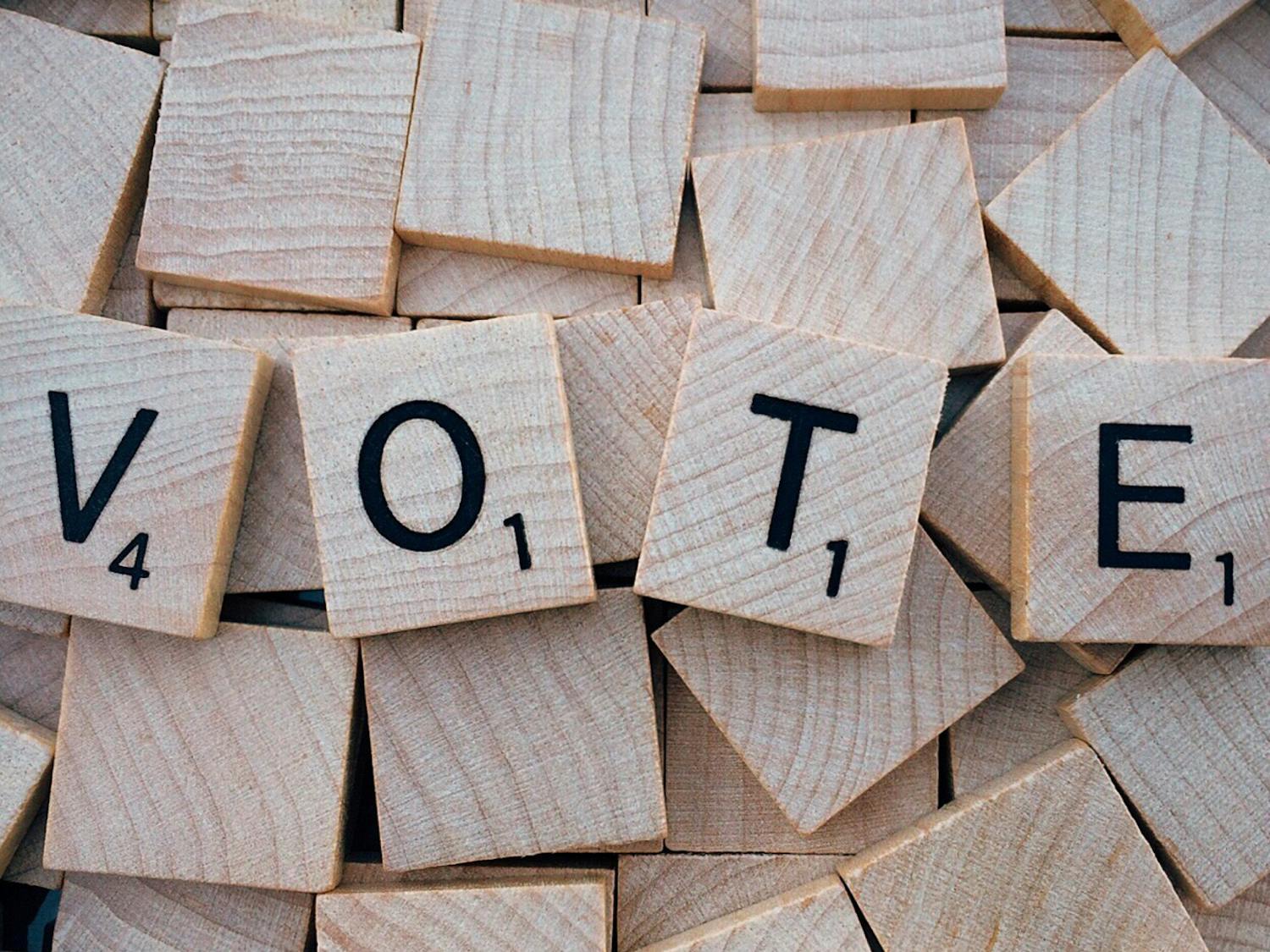On October 21, Kit Conner, the star of Netflix’s hit young adult queer TV show Heartstopper, tweeted that he was bisexual and said he was forced to come out. This comes after months and months of speculation over the eighteen-year-old’s sexuality, because of the fact that he plays a bisexual character and has never publicly addressed whether or not he was a part of the community.
I find that whenever the internet remembers that queerbaiting is a created concept, they tend to forget its actual meaning. Given the confusion around the term, I would like to remind everyone what the definition of queerbaiting is.
Defined by Kate Harrad in her book Claiming the B in LGBT: Illuminating the Bisexual Narrative, queerbaiting is a marketing technique for fiction and entertainment in which creators hint at — but do not clearly depict — same-sex romance or other LGBTQ+ representation. There are two words that should be focused on when discussing the usage of queerbaiting: marketing and fiction. Queerbaiting is inherently used to describe and market fiction, not real-life individuals who express their queerness in a way that isn’t cookie-cutter.
Queerbaiting is a real issue in media and marketing; however, we should not be using media terminology to essentially “out” people like Kit Conner.
Queerbaiting in Media
Our idea of queerbaiting, particularly in the media, isn’t new.
The term originated in the early 1970s and was used by queer people to voice their legitimate concerns with how certain commercials and marketing came across as queer. The word then entered fandom on Tumblr and Twitter in the 2010s for essentially the same purpose: call out companies and networks for portraying and profiting off of “queer” characters without officially labeling them as queer. Because of these social media platforms, the callout towards these corporations was now put on a larger scale.
Marvel has recently come under scrutiny by fans over their consistent ignored behavior towards queer characters being depicted in its movies. The movie to begin this was Captain America: The First Avenger. The movie, starring Chris Evans as the leading role, is an instance of queerbaiting in a digitalized era. Stucky, the relationship name between Steve Rogers and Bucky Barnes, were thought to have had many queercoded interactions in the movie, even though Steve was already connected with a heterosexual love interest.

Chris Evans and Sebastian Stan as Captain America and Bucky Barnes in Captain America: Civil War | Source: Marvel
Wednesday, the brand-new Netflix show based on the character from the beloved Addams Family, has also had similar queerbaiting discourse about the two stars, Wednesday and Enid.
There are many reasons why people think Netflix is queerbaiting as a way to gain popularity for these two shows, including a sweater and a promotional poster that many believed were from Netflix. But, there isn’t much objective evidence to back up what is so “queer” about their relationship.
Enjoy what you're reading?
Signup for our newsletter
Does being affectionate equal being queer?
I start to wonder what changes the relationship between the two characters from something platonic to something romantic. There’s nothing wrong with actively looking for queer representation in media, because it is so sparse, but is it good to project onto representation when it isn’t even substantial or when it isn’t even real?

Emma Myers and Jenna Ortega as Enid Sinclair and Wednesday Addams in Wednesday | Source: Netflix
Famous People Can’t Be Queer?
Other celebrities and public figures have had similar experiences as the recent occurrence of queerbaiting allegations against Kit Conner.
A prime example is the belittlement of Harry Styles and the consistent accusations of queerbaiting, especially within the last two years. The collective assumption that Styles was queerbaiting was during December of 2020 when he covered Vogue Magazine in a seemingly controversial outfit: a dress. This caused many to believe he was co-opting “queer aesthetics,” due to the fact that he did not formally announce being part of the LGBTQ+ community.
Megan Thee Stallion also shared a similar experience in which public speculation altered how an audience views a celebrity’s sexuality. In August of 2020, Megan went on Instagram live to say that she was “a free agent on the ladies side, looking for a new girlfriend.” This caused many queer people on social media to exclaim excitement due to a newfound transparency on her sexuality.
However, as recently as April 2021, Megan had told Caresha Romeka, known as Yung Miami (City Girls), that she’d been “too shy to tell her in person but [...] [she] wanna date.” People then called Megan out under the disguise of “performative bisexuality,” which is ironic considering Megan’s own place within the LGBTQ+ community. This is an expository common trend on the Internet of people not believing Black women when they speak their truth.
These discourses are simply obtuse to me; why should the very fact of a man wearing a dress queer? Why does every single thing Megan thee Stallion does in relation to her sexuality get picked apart? While at one point it was only American conservative politicians who were picking apart Styles’s sexuality, suddenly queer people themselves began to agree with their points — the whole plot started to blur.
There are many people who are queer themselves, but don’t believe that celebrities and public figures can be outed, which is incredibly hypocritical. They argue that celebrities can’t experience closeting and outing, simply because they’re public figures; it’s a part of the job.
It is completely preposterous to think queer people who don’t fit the model of how queerness “should be” presented are not deserving of respect or empathy, especially on a public scale. Megan, Harry, and any other public figures do not have to have an ideal way of expressing their sexualities to the public.
How People View Queerbaiting
Social media has warped the idea of queerbaiting into this “chronically online” narrative that could never translate into offline, real-world discussions, because the discourse is inherently one-dimensional, exclusionary, and revealing of how people’s perceptions of being queer are revolved around stereotypes.
Many of these arguments for or against queerbaiting are rudimentary at best. The same several explanations are shared whenever Harry Styles wears something remotely feminine or Megan Thee Stallion shares lyrics about her identity that are too vague to understand.
Is it not boring, not completely dull and repetitive? Actively critiquing how real people present their sexualities?




